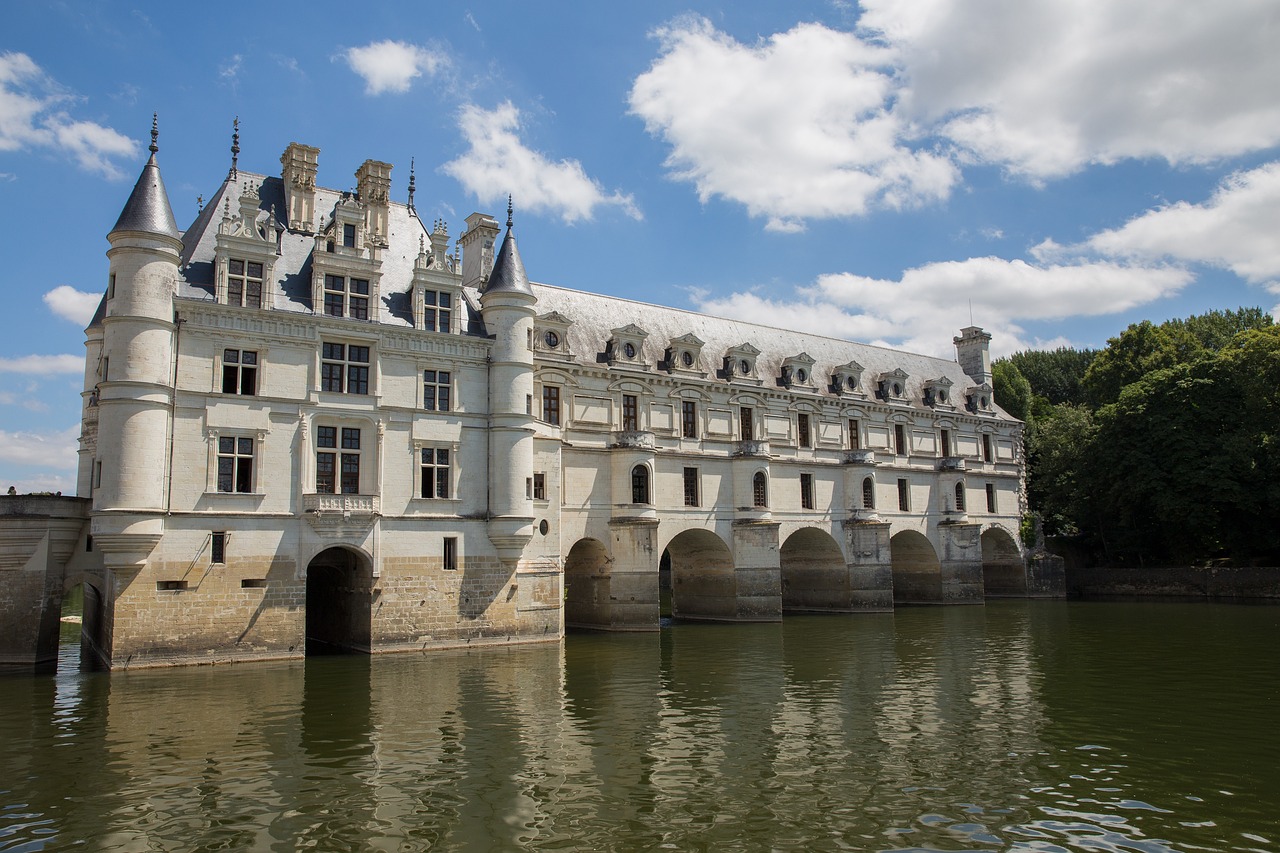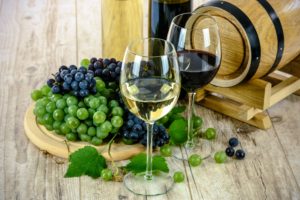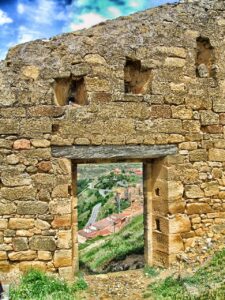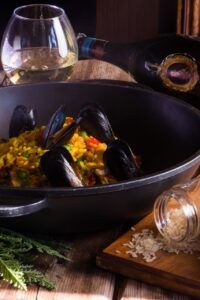The Loire Valley is one of the most diverse, picturesque, and historically rich wine regions in France. Often referred to as the “Garden of France,” it stretches across the heart of the country, following the winding path of the Loire River, France’s longest waterway. This iconic region is home to an incredible variety of grape varieties, climates, and wine styles—from crisp whites and light reds to sweet dessert wines and elegant sparkling wines.
Whether you’re a wine beginner or a seasoned connoisseur, the Loire Valley has something to enchant your palate. In this blog, we’ll explore the region’s topography, climate, weather patterns, and key wines—so let’s dive in.
Where Is the Loire Valley?
The Loire Valley wine region extends over 600 miles, starting from the Atlantic coast near Nantes and reaching almost to the center of France around Sancerre and Pouilly-Fumé. The region is divided into four sub-regions:
Pays Nantais – Closest to the Atlantic Ocean
Anjou-Saumur – Mid-west of the Loire
Touraine – The central garden of France
Centre-Loire – Eastern end, near Burgundy
Topography of the Loire Valley
The Loire Valley is marked by its rolling hills, riverbanks, plains, and forests, with no significant mountain ranges within the immediate wine-producing area. However, the region is deeply influenced by the Loire River, which flows westward from central France to the Atlantic Ocean.
The valley is surrounded by limestone ridges, gravel terraces, and tuffeau (chalky limestone) cliffs that help shape its vineyards. In places like Vouvray and Saumur, wine cellars are even carved into these ancient stone walls.
These geological features influence both the microclimates and soil compositions, which in turn affect the style and quality of wines produced.
Climate and Weather Patterns
The Loire Valley is a cool-climate region, but its climate varies significantly from west to east:
1. Pays Nantais
Maritime climate influenced by the Atlantic Ocean
Mild winters, cool summers, and moderate rainfall
Ideal for early-ripening grapes like Melon de Bourgogne
2. Anjou-Saumur and Touraine
Transitional climate between maritime and continental
Slightly warmer with more seasonal variation
Better suited for Chenin Blanc, Cabernet Franc, and sparkling wines
3. Centre-Loire
Continental climate with colder winters and hot, dry summers
More vulnerable to spring frosts
Perfect for aromatic varieties like Sauvignon Blanc and Pinot Noir
Weather Challenges
The region faces vintage variation due to its northern latitude. Late frosts, hail, and rainy harvests can impact yields and quality. However, in ideal years, the wines show incredible freshness, minerality, and purity of fruit.
Key Grape Varieties of the Loire Valley
The Loire is unique in its use of mono-varietal wines—meaning most wines are made from a single grape variety, allowing terroir to shine.
White Grapes:
Sauvignon Blanc (Sancerre, Pouilly-Fumé)
Chenin Blanc (Vouvray, Saumur, Coteaux du Layon)
Melon de Bourgogne (Muscadet in Pays Nantais)
Red Grapes:
Cabernet Franc (Chinon, Saumur, Bourgueil)
Pinot Noir (Sancerre)
Gamay (Touraine)
Iconic Wine Styles by Sub-Region
Let’s explore the signature wines of each Loire Valley sub-region, including sparkling and sweet offerings.
1. Pays Nantais – Crisp and Salty Whites
Main Grape: Melon de Bourgogne
Top Wine: Muscadet Sèvre et Maine Sur Lie
Light, bone-dry white wine with high acidity and subtle saline notes
Often aged on lees (“sur lie”) to add creaminess and texture
Perfect with oysters and seafood
2. Anjou-Saumur – Floral Whites and Structured Reds
White Wines:
Chenin Blanc produces both dry (Savennieres) and luscious sweet wines (Coteaux du Layon, Bonnezeaux)
Sweet wines are made from botrytized (noble rot) grapes, rich in honey, apricot, and marmalade
Red Wines:
Cabernet Franc from Saumur-Champigny offers bright red fruit, herbs, and earthy minerality
Sparkling Wines:
Crémant de Loire – Traditional method sparkling wine made from Chenin Blanc and other varieties
High acidity and fine bubbles make it a Champagne alternative
3. Touraine – The Heart of Diversity
Vouvray (Chenin Blanc):
Can be dry (sec), off-dry (demi-sec), sweet (moelleux), or sparkling (mousseux)
Age-worthy wines with notes of apple, honey, and almond
Chinon and Bourgueil (Cabernet Franc):
Medium-bodied reds with soft tannins, raspberry, graphite, and herbaceous notes
Touraine AOC (varietals):
Also produces Sauvignon Blanc, Gamay, and Malbec (Côt)
4. Centre-Loire – Sauvignon Blanc’s Pinnacle
Sancerre and Pouilly-Fumé:
Pure, zesty Sauvignon Blanc with aromas of citrus, green apple, and flint (especially Pouilly-Fumé)
Some Sancerre Rouge made from Pinot Noir, offering elegant red cherry and earthy undertones
These wines are known for their precision, minerality, and energy.
Loire Valley Sparkling Wines
The Loire is France’s second-largest producer of sparkling wine after Champagne. Using the traditional method (like Champagne), these wines offer excellent quality and value.
Key Sparkling Wines:
Crémant de Loire (Anjou-Saumur, Touraine)
Vouvray Mousseux (Chenin Blanc)
Saumur Brut (Chenin with Chardonnay or Cabernet Franc)
These wines are typically dry, vibrant, and perfect for celebrations or food pairings.
Loire Valley Sweet Wines
The Loire produces some of the world’s most underrated sweet wines, primarily from Chenin Blanc. The best examples come from vineyards affected by noble rot (botrytis cinerea), which concentrates sugars and flavors.
Famous Sweet Wines:
Coteaux du Layon
Bonnezeaux
Quarts de Chaume
These wines balance intense sweetness with racy acidity, making them long-lived and ideal for pairing with blue cheese, foie gras, or fruit tarts.
Final Thoughts: Why the Loire Valley Deserves Your Attention
The Loire Valley is a treasure trove of wine diversity. Its cooler climate, distinct terroirs, and focus on varietal expression result in wines that are vibrant, fresh, and often incredibly age-worthy. From the minerality of Sancerre to the creamy bubbles of Crémant de Loire, and the golden richness of Coteaux du Layon, there’s a wine for every taste and occasion.
Whether you’re exploring the Loire River by bike or just browsing the wine shop shelf, don’t overlook this incredible region—it offers some of the best value and most authentic wines in the world.






